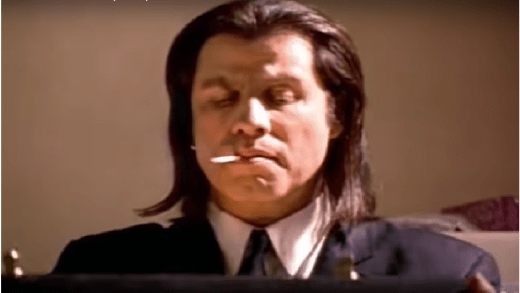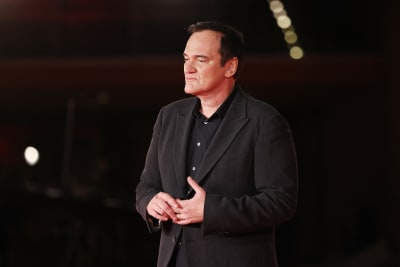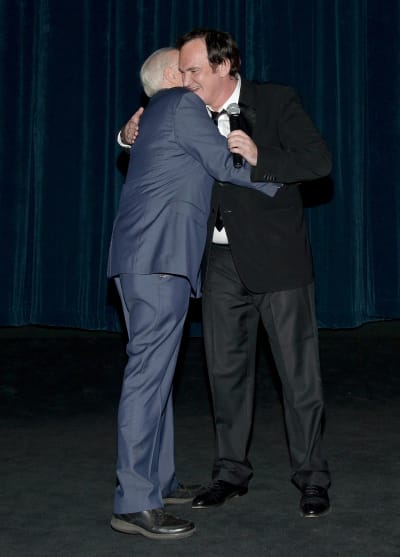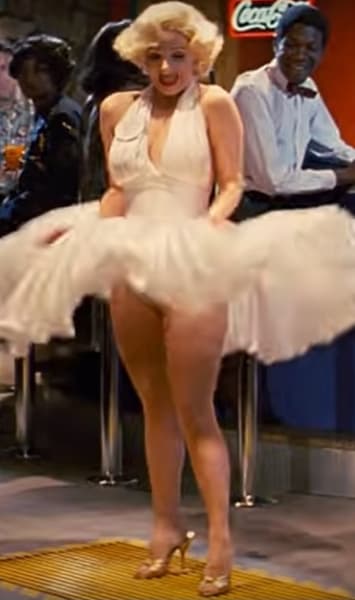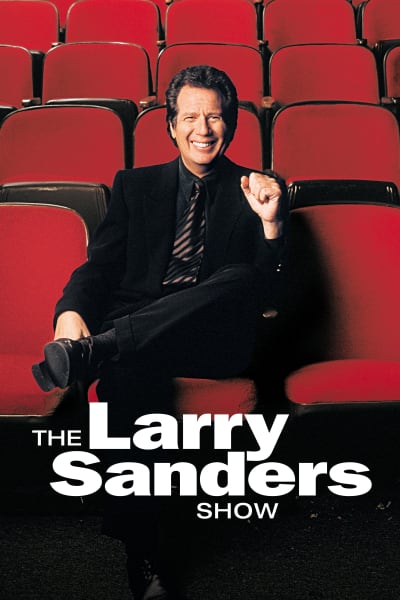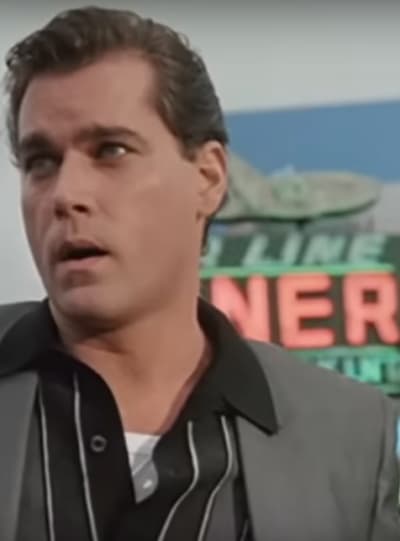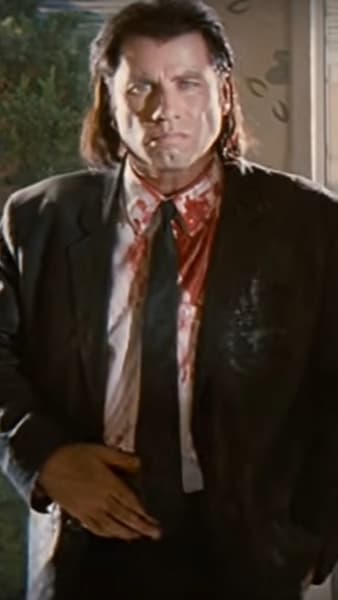[ad_1]
Think about what it was like within the Nineteen Nineties — and being continually instructed and reminded that Tarantino was revolutionizing cinema.
Not solely was Quentin Tarantino’s indie challenge being worshiped by movie critics in 1994, however it was additionally being staged because the antithesis to the 12 months’s different subversive comedy, Forrest Gump, starring Tom Hanks.
Forrest Gump represented conventional values and innocence. (Although screenwriter Eric Roth nor Winston Groom ever meant the character that method)
Pulp Fiction represented cynicism and brutality triumphing over good intentions. It was an Oscar race partly conceived by Miramax and Harvey Weinstein, who, imagine it or not, was once good at different issues moreover…nicely, .
It was unattainable for Gen X to not embrace Pulp Fiction as their era’s film and the one that almost all spoke to their maturing tradition. Perhaps amid the media storm, I used to be the one one who noticed what was taking place.
Pulp Fiction was used as an apotheosis of impartial filmmaking and marketed because the dawning of a brand new period in Hollywood.
How fortunate we have been to be part of it! Or in order that they mentioned.
The Nineteen Nineties have been supposedly turning into a decade of pulpy, shapeless abstracts in Hollywood, the place motion pictures might go wherever, be something, and inform tales you’ve got by no means heard.
After all, it will take one other 5 years or so (and never coincidentally, 5 extra years of Miramax campaigning) to succeed in this “state of infinite potentialities” that turned the 2000s.
Now, on its thirtieth anniversary, moviegoers are attempting to recollect what was so particular about Pulp Fiction again within the day, and they’re attempting to make Gen Zers perceive what it was wish to see Pulp Fiction in 1994.
Interviews with the movie’s solid guarantee us that it modified cinema and revolutionized how movies are written, filmed, and produced in the present day.
However did it actually?
Individuals do not do not forget that Pulp Fiction was a mishmash of genres that filmmakers of yesteryear had already pioneered.
The movie borrowed from an enormous pool of leisure sources.
These included comedian books, pulp fiction novels, Seventies shlock westerns, blaxploitation movies, and a handful of indie motion pictures from the Seventies whose administrators likewise discovered mainstream motion pictures too stuffy and wished to attempt one thing completely different.
Even the movie’s writers, Roger Avary and Tarantino, admitted they have been impressed by Black Sabbath (1963) by Mario Bava.
Tarantino later mentioned he wished to jot down a three-part sequence and “do one thing that novelists get an opportunity to do, however filmmakers do not — inform three separate tales, having characters float out and in with completely different weights relying on the story.”
Cinema geniuses are often the primary to confess these are tales “you’ve got seen a zillion instances” (in Quentin’s phrases) however have by no means seen fairly like this earlier than.
In 1994, Pulp Fiction’s success benefited from an atmosphere that rebellious and iconoclastic auteurs had already galvanized.
Different Trailblazers of tv and flicks, who discovered success breaking the mould within the late Eighties and early Nineteen Nineties, ready the world for Pulp Fiction. This coming-of-age movie pressured Hollywood to acknowledge impartial cinema moderately than treating it like novice hour.
Pulp Fiction spoke with a frank language many individuals who averted indies had by no means heard earlier than.
However was it any worse than Carnal Information (1971) or The Larry Sanders Present? This Nineteen Nineties mockumentary sitcom launched audiences to how showbusiness folks talked when the cameras have been off.
Pulp Fiction scarred audiences with graphic depictions of assault towards Marsellus Wallace, however was it any extra surprising than what folks noticed in Deliverance (1972), which starred honest-to-goodness film stars who had the whole lot to lose by telling this story?
Individuals have been in awe of Pulp Fiction’s screenplay, one of many first mainstream movies to incorporate scenes of irrelevant and irreverent dialog that existed for no function however amusing.
However was it any extra “nothing” than Seinfeld, a present that debuted 5 years earlier than cinema was endlessly modified?
Was Tarantino’s morally advanced screenplay vastly completely different than twenty years of Woody Allen deconstructing archetypes and utilizing antiheroes within the hero’s function?
The movie’s violence, whereas naturally scaring prudish viewers away, did not actually trigger folks to faint (like The Exorcist, 1973) or get the film banned (A Clockwork Orange, 1971).
It did not even explode cinema by humanizing gangsters and unapologetically glorifying the prison life like Goodfellas (1990).
Whereas some folks could have been traumatized by the notorious syringe scene, it isn’t like Tarantino needed to seem in courtroom and clarify how he achieved convincing visible results to keep away from jail time (Cannibal Holocaust, 1980).
A lot of the movie’s GOAT standing got here from the best way the movie was marketed, financed, and produced — from a rejected darkish horse to an Oscar contender with Gen X credibility. Pulp Fiction’s success modified cinema for certain.
The film ages nicely, however watching it now does not give youthful audiences the identical jolt it gave Nineteen Nineties idealists.
It has been Citizen Kane’d in that respect.
We take as a right so most of the cliches and tropes that Pulp Fiction launched to a largely vanilla Hollywood — that also one way or the other noticed Forrest Gump as an American Nostalgia journey moderately than a historic satire.
Now, I am not suggesting Pulp Fiction wasn’t and is not nonetheless lots of enjoyable, and it actually was not like another movie on the time. In spite of everything, what number of mainstream moviegoers ever watched international movies or shlock horror motion pictures within the Eighties?
Pulp Fiction was one of many movies that helped mainstream audiences understand there have been so many different choices within the video retailer.
It is not so ironic, contemplating that Pulp Fiction was made by Tarantino, who realized his commerce from a video retailer promoting glorious and horrible movies as a substitute of attending school.
The movie ushered in a brand new age of mishmash movies and genre-defying screenplays and, thus, was much less predictable than the established format of mainstream Hollywood.
Did Tarantino and Miramax power Hollywood to open its eyes and increase its creativity by trying past formulation that had already labored? After all, it did.
However alongside the best way, Tarantino additionally Orson Welles’d himself and set the bar so excessive whereas he was nonetheless so younger that he by no means fairly reached one other inventive peak.
After years of disappointing follow-ups, Inglourious Basterds and Django Unchained have been the closest Quentin got here to matching the reception of his first huge hit.
Tarantino excels when he mishmashes genres, and the brand new “Revisionist and Surrealist Historical past” style was a brand new one value tampering with. Watching historical past unfold as Tarantino remembers it! Nice stuff.
However now going through his inevitable retirement and his closing movie, “The Film Critic,” he’s slowly however certainly sinking into nostalgia for the enterprise he loves.
As soon as Upon a Time in Hollywood was his love letter to Hollywood, an trade that accepted and glorified him in ways in which might solely occur as soon as in a lifetime.
He won’t ever make one other Pulp Fiction, and never simply because, supposedly, creativity peaks in your 20s and 30s, and artists do are likely to repeat themselves after their glory days are over.
As a substitute, he won’t ever create one other masterpiece as well-received as his biggest movie as a result of he can by no means reside as much as the studio-crafted hype that jumpstarted his profession. Who probably might?
We’ll by no means let him exceed his personal excessive requirements as a result of the zeitgeist that birthed Pulp Fiction is lengthy gone.
It was a second in time when Gen X grew up and realized this was our era’s masterpiece. (Although, by all accounts, Quentin was a Boomer writing for Gen X).
If something, Pulp Fiction’s legendary standing outcomes from some glorious storytelling. I wanted a narrative that satisfied me to observe Pulp Fiction within the first place. A narrative that sells a narrative — now that is what alcoholics may name a second of readability.
Michael Arangua is a employees author for TV Fanatic. You’ll be able to observe him on X.
[ad_2]


